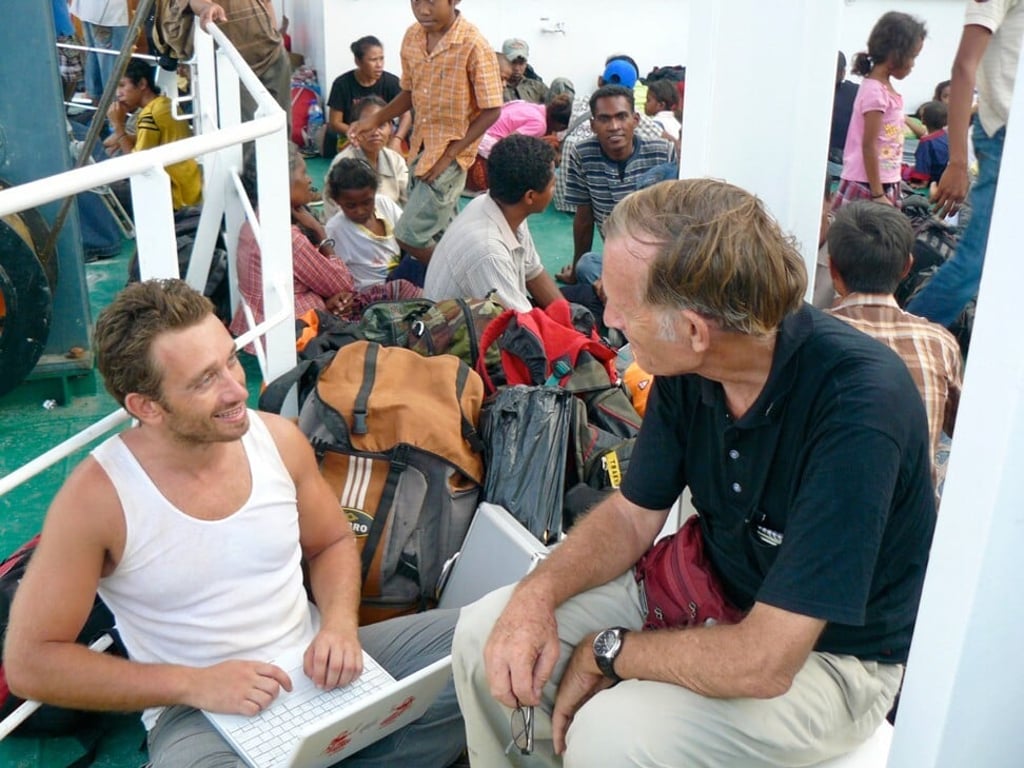In East Timor, self-professed paedophile and former priest Richard Daschbach continues to evade justice
After meeting American Catholic priest Richard Daschbach in East Timor, a writer helped him procure funding for his orphanage, before discovering the man was a sexual predator

From the moment I first laid eyes on him, in 2009, I knew he was unlike the few other Westerners on the ship. Slowly, steadily, he made his way through the crowd, stopping as local people took his hand and touched it against their foreheads – a traditional sign of veneration for men of the cloth. Yet this old man seemed anything but missionary-like, dressed down in a polo shirt and an old baseball hat, with small stumpy teeth stained red from chewing betel nut.
Later in the evening, I saw him again, resting on the upper deck among the hundreds of passengers making the slow overnight journey from East Timor’s sleepy capital, Dili, to Oecusse, a small coastal territory of East Timor, walled in by Indonesian-controlled West Timor.
His name was Father Richard Daschbach, an American priest who had built the Topu Honis orphanage and women’s shelter near Oecusse. We talked for more than an hour and at the end of our discussion, he invited me to stay at Topu Honis as his guest. In Meto, Oecusse’s little-known tongue, topu means “to lead by the hand’” and honis means “life”.
After a simple breakfast of hot rice and vegetables, we set off on a two-hour slog uphill, through dense jungle, to reach Topu Honis at the village of Kutet. At 73, Daschbach was in incredibly good shape, skirting the slippery path like a mountain goat.
“The trick is to stay active,” he chimed. “Active in the body and active in the mind.”

The son of a Pennsylvanian steelworker, Daschbach was dispatched to Timor as a missionary by the Catholic Church two years after his ordination in 1967.